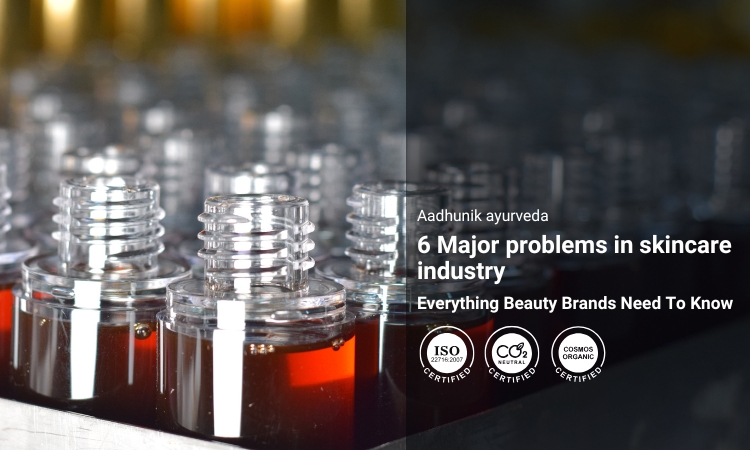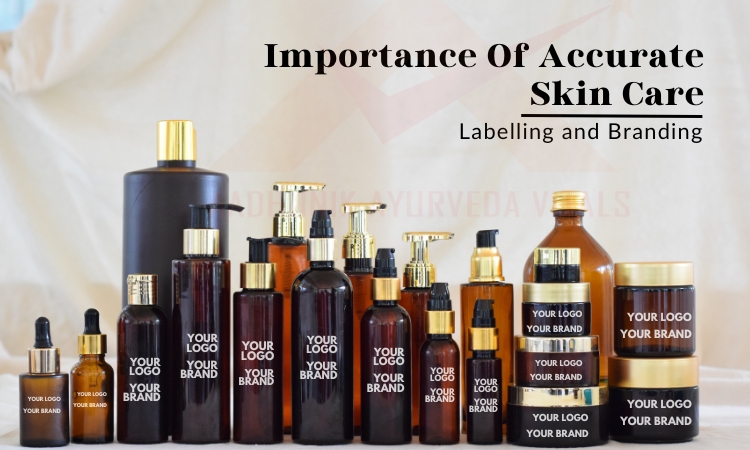
Ethical Private Label Skincare Product Development & Manufacturing Services
Ethical Private Label Skincare Product Development & Manufacturing Services | What is Ethical Skincare Product Development? |Key aspects of ethical skincare development include: |Why Ethical Practices Matter in Private Label Skincare |Beyond Aesthetics: Focusing on Real Skin Benefits |Key Elements of Ethical Skincare Manufacturing |Avoiding Harmful Chemicals and Additives |This ensures the safety and efficacy of the products. |The beauty industry has witnessed a seismic shift in consumer priorities over the past decade. Today, skincare enthusiasts are not just looking for products that promise radiant skin but also demand transparency, sustainability, and ethical practices from brands. Simply changing the color or aroma of a product without addressing the real needs of the skin no longer suffices. Ethical practices in skincare manufacturing are essential to creating high-quality products that truly benefit consumers and the planet.
Ethical private label skincare manufacturing focuses on developing products that prioritize skin health, environmental sustainability, and social responsibility.
What is Ethical Skincare Product Development?
Ethical skincare product development refers to the process of creating skincare solutions that adhere to principles of integrity, sustainability, and transparency. It goes beyond more compliance with regulations and focuses on delivering real value to the consumer while minimizing environmental impact. In other words, ethical products are created in a way that respects both people and the planet. This means they are made without exploiting workers, animals, or the environment, ensuring that no harm is caused throughout their production journey.
Key aspects of ethical skincare development include:
- Using high-quality, sustainably sourced ingredients.
- Avoiding harmful chemicals and additives.
- Ensuring cruelty-free testing and production processes.
- Committing to fair trade practices.
- Prioritizing the real needs of the skin rather than superficial enhancements.
This approach ensures that products are not only effective but also align with the values of conscious consumers.
Why Ethical Practices Matter in Private Label Skincare
Private label skincare brands are uniquely positioned to lead the charge in ethical manufacturing. By adopting ethical practices, these brands can:
- Build Consumer Trust: Transparency and integrity foster loyalty among customers.
- Enhance Brand Reputation: Ethical practices set brands apart in a competitive market.
- Ensure Long-Term Sustainability: Environmentally friendly processes reduce the ecological footprint.
- Meet Regulatory Standards: Adhering to ethical practices ensures compliance with global regulations.
- Cater to Conscious Consumers: The demand for ethical skincare is on the rise, making it a lucrative market
In a world where consumers scrutinize every label, ethical practices are no longer optional but essential for success.
Beyond Aesthetics: Focusing on Real Skin Benefits
Many skincare products on the market focus on superficial qualities like fragrance, texture, or color. While these factors may enhance the user experience, they do not address the core needs of the skin. Ethical skincare development prioritizes:
- Skin Health: Formulations designed to nourish, hydrate, and protect the skin.
- Problem-Solving: Targeting specific skin concerns such as acne, aging, or dryness.
- Long-Term Benefits: Using ingredients that promote skin regeneration and resilience.
By focusing on genuine benefits, ethical skincare products provide value that goes beyond the surface.
Key Elements of Ethical Skincare Manufacturing
Transparency in Ingredient Sourcing
Consumers today demand to know where their products come from. Ethical manufacturers ensure:
- Clear labeling of all ingredients.
- Use of sustainably sourced raw materials.
- Fair trade practices to support local communities.
Transparency builds trust and allows consumers to make informed choices.
Sustainability in Production Processes
Sustainability is at the heart of ethical manufacturing. This includes:
- Minimizing waste during production.
- Using renewable energy sources.
- Adopting eco-friendly packaging solutions.
- Adopting traditional technique to ensure minimal process while creating employment and thus reducing dependence on automation/electricity. This way every brand can ensure reduced contribution to carbon emission.
Sustainable practices reduce environmental impact and align with global efforts to combat climate change.
Avoiding Harmful Chemicals and Additives
Ethical skincare products are free from:
- Parabens, sulfates, and synthetic fragrances.
- Harmful preservatives and fillers.
- Ingredients linked to health concerns or environmental damage.
This ensures the safety and efficacy of the products.
Commitment to Cruelty-Free Practices
Animal testing is increasingly being rejected by consumers and regulators alike. Ethical manufacturers:
- Use alternative testing methods such as in-vitro or computer modeling.
- Obtain cruelty-free certifications.
- Clean products manufacturers need not test their ingredients ever on animals thay use clean plant based ingredients only.
- Partner with suppliers who share their commitment to animal welfare.
Challenges in Maintaining Ethical Standards in Skincare Manufacturing
Adhering to ethical practices is not without challenges. These include:
- Higher costs associated with sustainable and fair trade ingredients.
- Limited availability of certain eco-friendly raw materials.
- Navigating complex regulatory landscapes across different markets.
Despite these hurdles, the long-term benefits of ethical manufacturing far outweigh the challenges.
Ethical Formulation Practices: Addressing Real Skin Needs
Ethical formulations prioritize:
- Active ingredients backed by scientific research.
- Balanced pH levels to maintain skin’s natural barrier.
- Gentle, non-irritating formulations suitable for all skin types.
This ensures that products deliver on their promises while being safe and effective.
The Role of Consumer Awareness in Ethical Skincare
Educated consumers are driving the demand for ethical skincare. Brands must:
- Communicate their ethical commitments clearly.
- Provide transparency about sourcing and production practices.
- Engage in educational campaigns to highlight the benefits of ethical skincare.
How Ethical Practices Build Brand Trust and Loyalty
Consumers are more likely to remain loyal to brands that:
- Demonstrate a commitment to ethical practices.
- Deliver high-quality, effective products.
- Align with their personal values.
The Rise of Certifications in Ethical Skincare Manufacturing
Certifications play a crucial role in establishing credibility. Key certifications include:
Organic and Natural Certifications
- Ensure the use of organic and natural ingredients.
- Verify sustainable farming practices.
Fair Trade and Sustainable Sourcing Labels
- Guarantee ethical treatment of workers.
- Promote community development in sourcing regions.
Cruelty-Free and Vegan Certifications
- Confirm that products are free from animal testing and animal-derived ingredients.
Aadhunik Ayurveda: Pioneering Ethical Private Label Skincare
Aadhunik Ayurveda exemplifies ethical skincare manufacturing with:
- A focus on natural, plant-based ingredients.
- Sustainable and eco-friendly production methods.
- Transparent sourcing and fair trade practices.
Focus on Skin Health, Not Just Aesthetics
Aadhunik Ayurveda’s formulations are designed to address real skin needs, ensuring long-term benefits.
Eco-Friendly and Sustainable Practices
Aadhunik Ayurveda employs renewable energy and minimizes waste, setting a benchmark for sustainability.
Innovative and Transparent Formulation Techniques
By leveraging cutting-edge technology, Aadhunik Ayurveda creates products that are both effective and ethical.
The demand for ethical skincare is not a passing trend but a fundamental shift in consumer values. Brands that prioritize ethical practices will not only contribute to a healthier planet but also build lasting relationships with their customers. Partnering with a trusted manufacturer like Aadhunik Ayurveda ensures that your private label skincare brand aligns with these values, delivering products that are as ethical as they are effective.
FAQs:
What defines an ethical skincare product?
An ethical skincare product is one that prioritizes sustainability, transparency, and consumer safety, using high-quality, responsibly sourced ingredients.
How do ethical practices impact product quality?
Ethical practices ensure the use of premium ingredients and sustainable methods, resulting in safer, more effective products.
What certifications ensure ethical skincare manufacturing?
Certifications such as NPOP, USDA Organic, Fair Trade, and including self certification of no animal testing, connect with farmers, sourcing from nearby to reduce logistics and thus carbon footprints all together validate a brand’s ethical commitments. And Aadhunik Ayurveda stands way ahead in delivering products compliant to ethics.
Why should I choose an ethical private label manufacturer?
Ethical manufacturers provide high-quality products, build brand trust, and align with consumer values, giving your brand a competitive edge.





